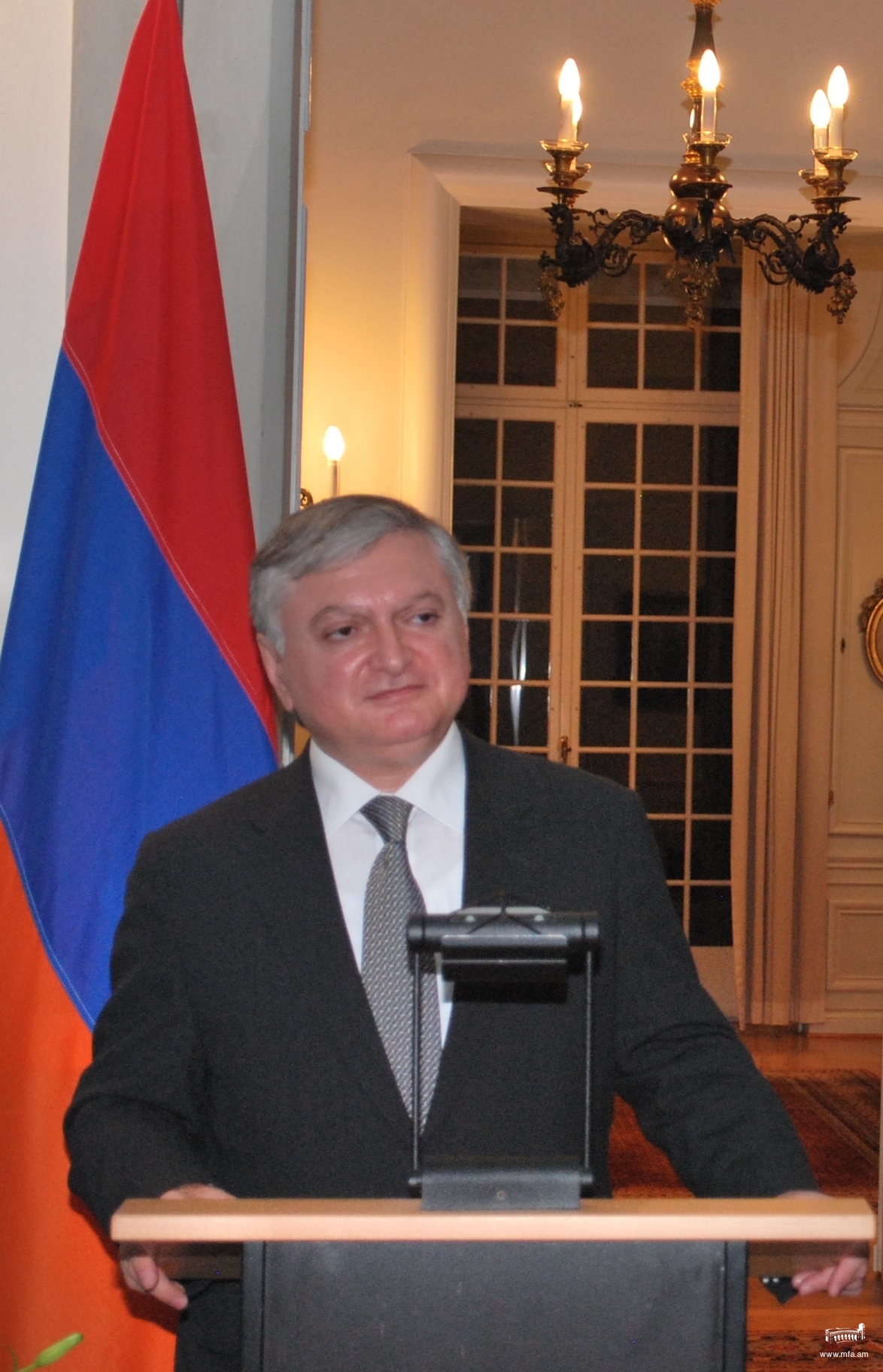Answer by Foreign Minister Edward Nalbandian to the questions of News.am news agency
24 August, 2017Question: How would you comment on the elements of the settlement of the Nagorno-Karabakh conflict presented by the US Co-Chair Hoagland?
Answer: I already had an opportunity earlier today to answer to that question. I emphasized that the presented elements in general repeat the provisions of the well-known five statements on the Nagorno-Karabakh settlement issued by the Presidents of the Minsk Group Co-Chair countries.
Question: In other words, did Hoagland literally repeat those provisions?
Answer: In his comment he tried to remain faithful to those provisions, however, he made some inaccuracies and omissions. I would like to repeat once again, that the position on the Nagorno-Karabakh settlement is expressed not via separate comments, but via joint proposals and statements of the Co-Chair countries. In particular, the position of the Co-Chair countries was expressed in five statements issued on the level of presidents, and has been reaffirmed by the Co-Chairs on numerous occasions; for example, in the statement of the Foreign Ministers of the Co-Chair countries adopted in Hamburg last December.
By the way, alongside the six elements of the conflict settlement, the statements of the Presidents and Foreign Ministers of the Co-Chair countries refer also to the three principles of international law as the basis for the conflict resolution, namely: non-use of force or threat of use of force, equal rights and self-determination of peoples and territorial integrity.
Armenia has repeatedly expressed its position on the statements of the Co-Chair countries. That has not been the case with Azerbaijan, which ignores these statements and pretends as if that they do not exist at all. Thus, Baku blatantly opposes to the approaches of the Co-Chair countries.
The consistent statements by the Co-Chairs once again demonstrate that the fictions scenarios on the conflict resolution and distorted elements of settlement recently fabricated by Azerbaijan have nothing to do with the reality.
Ambassador Hoagland in his comment opens the list of elements of the Nagorno-Karabakh settlement from the determination of the final legal status of Nagorno-Karabakh through expression of will, which should have a legally binding character, including for Azerbaijan.
It has become endemic for Baku to backtrack from the prior agreements. This refers not only to the settlement process of the conflict, but to the confidence building measures, as well. Particularly, the statement of the Foreign Ministers of the Co-Chair countries in Hamburg once again urged to implement the agreements reached at the Vienna and St. Petersburg Summits. It is well known, that Armenia and Artsakh have continuously reiterated their readiness to implement those agreements, while Azerbaijan has backtracked from its commitments.
Armenia will consistently continue to exert joint efforts together with the OSCE Minsk Group Co-Chair countries aimed at exclusively peaceful settlement of the conflict between Azerbaijan and Artsakh (Nagorno-Karabakh).


